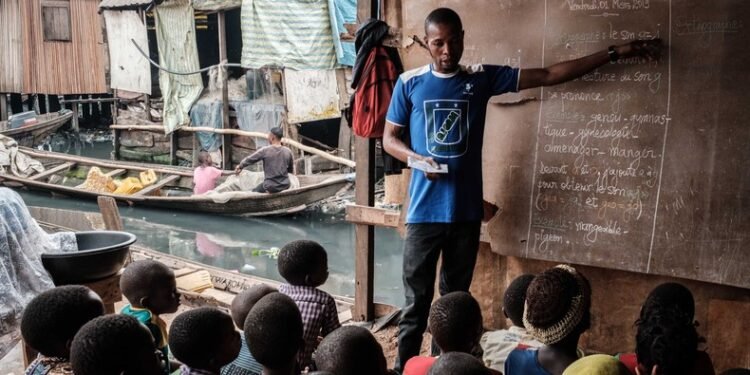Despite significant economic advancements in several African countries over the past decade, the quality of life on the continent is on the decline as countries grapple with pervasive poverty and inequality.
Health and education systems struggle with some of the lowest outcomes globally, and millions still lack access to basic necessities like safe drinking water and proper sanitation.
The widespread issue of underemployment and the lack of job opportunities across Africa exacerbates the low quality of life experienced by many residents.
This, coupled with ongoing civil wars and environmental crises like famine, has devastated numerous African cities. As a result, Africa currently hosts a staggering 30 million refugees, according to the UN High Commissioner for Refugees.
The Human Development Index (HDI), crafted by the United Nations Development Programme (UNDP), ranks countries based on their human development levels, considering three core dimensions: health, education, and living standards.
It provides a broader perspective on development beyond economic metrics alone.
The UNDP’s 2023-24 Human Development Report examines HDI trends from 1990 to 2022, highlighting global and regional performance in these dimensions.
HDI scores, ranging from 0 to 1, reflect a country’s achievements in life expectancy, access to education, and income per capita—where higher scores signify greater human development.
The table below sourced from Qery, presents the African countries with the lowest quality of life according to the UNDP HDI;
| Rank | Country | Rank | HDI Value |
|---|---|---|---|
|
1 |
Somalia |
193 |
0.38 |
|
2 |
South Sudan |
192 |
0.381 |
|
3 |
Central African Republic |
191 |
0.387 |
|
4 |
Chad |
189 |
0.394 |
|
5 |
Niger |
189 |
0.394 |
|
6 |
Mali |
188 |
0.41 |
|
7 |
Burundi |
187 |
0.42 |
|
8 |
Burkina Faso |
185 |
0.438 |
|
9 |
Sierra Leone |
184 |
0.458 |
|
10 |
Mozambique |
183 |
0.461 |
The Human Development Index (HDI) rankings reveal stark contrasts in global human development. Switzerland led the rankings with a score of 0.967, just ahead of Norway at 0.966 and Iceland at 0.959. Hong Kong and Sweden followed closely, with scores of 0.956 and 0.952, respectively.
On the other hand, countries like Somalia, South Sudan, the Central African Republic, Chad, and Niger had the lowest HDI scores, highlighting the significant disparities in development across regions.
Improving the quality of life for Africans requires a multi-faceted approach focusing on economic development, education, healthcare, governance, and regional cooperation.
By addressing these key areas, Africa can achieve sustainable development and uplift the living standards of its people.









